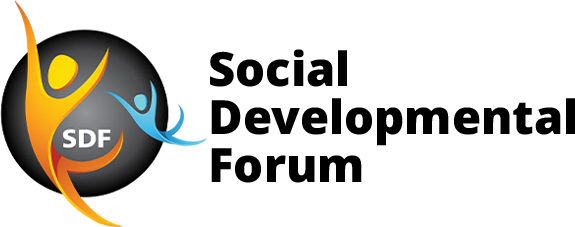SDF Joins Global Voices at the Copenhagen People Power Conference: Championing People Power for Justice in Palestine and Beyond

Copenhagen, Denmark | April 8–10, 2025
The Social Developmental Forum (SDF) took part in the Copenhagen People Power Conference (CPPC), a landmark global gathering spotlighting the transformative role of social movements in building sustainable and just peace. The event, organized by ActionAid Denmark, brought together activists, government officials, donors, UN representatives, human rights defenders, policymakers, and civil society leaders from across the globe to explore how people-powered movements and grassroots efforts, particularly by youth, can shape just and lasting peace.
The conference’s central themes—nonviolent resistance, gender equity in movement leadership, and the need for structural transformation in peacebuilding—resonate deeply with SDF’s ongoing work in Palestine. SDF advocates for civic space, community resilience, and youth-led change as an organization grounded in participatory development and social justice. This participation comes at a time of intensified global advocacy for Palestinian rights. Through its #PalestinianLivesMatter campaign and extensive youth engagement work in Gaza and the West Bank, SDF has championed nonviolent resistance, civic engagement, and storytelling to highlight Palestinian experiences under occupation and siege, which embodies SDF’s mission to amplify Palestinian voices, aligns powerfully with the conference’s focus on “How people power can drive meaningful conflict transformation.”

Embedding global efforts in local action:
The conference opened with remarks from Nada Al-Nashif, the UN Deputy High Commissioner for Human Rights, who stated:
“Peace is something we build together—with and through people. This conference is a bold reminder that sustainable peace is not only negotiated at tables but demanded in streets, fields, and digital spaces.”
“The Copenhagen People Power Conference was a unique platform that brought together frontline experiences from Palestine, Myanmar, Sudan, Congo, and beyond,” said Atta Khaled, Communications Officer at SDF, who represented the organization at the conference and engaged with global peers to exchange strategies and share the forum’s core experience in mobilizing youth and grassroots initiatives said. “The diverse voices reminded us that while contexts differ, the courage and creativity of social movements offer universal lessons in resistance and resilience. Palestine’s struggle is not in isolation—it is deeply connected to global movements for justice.”
“As SDF, we return with renewed commitment and resources to continue empowering Palestinian youth to be leaders of change,” Atta stated.

SDF has also joined the conference as a recent Global Grassroots Activists Network (GGAN) member, the key driver of Solidarity 2020 and Beyond. S2020B had several members at the conference engaged in sessions and strategic meetings, including from Colombia, Pakistan, Mexico, Uganda, and Palestine. They are an international network founded in 2020 and comprise 225+ seasoned grassroots community leaders and activists working in 100+ campaigns and social justice movements in 80+ countries worldwide. They build People Power, focused on strategic nonviolent action and civil resistance tactics and methods featured at the Copenhagen Conference. Their work is focused on combining forces and sharing initiatives with top-down, bottom-up strategies to accompany and work in solidarity with human rights defenders, land struggles and indigenous rights, anti-racism, women’s rights and gender justice, self-determination struggles and climate crisis and environmental justice initiatives around the world, mainly in the Global South.
Copenhagen People Power Conference (CPPC)
The second version of the three-day conference was thoughtfully structured to explore different facets of people-powered peacebuilding. The first day, titled “What is the reality and role of people power in conflict transformation?” featured sessions, such as “From the street to the peace table” and “Organising nonviolent resistance amid war,” highlighted challenges faced by movements in Palestine, Sudan, and Ukraine. The day closed with a screening of “No Other Land”, an Oscar-winning documentary featuring voices from Masafer Yatta in the West Bank, which served as a powerful reminder of the human cost of occupation and the strength of resistance through storytelling—a method SDF continues to invest in through its digital campaigns and community-based media.

The second day held three major dimensions: Resisting, Building, and Supporting. It included panels focused on artivism, gender and movement leadership, disinformation, and the practicalities of funding grassroots movements. Given its focus on youth and inclusive change, SDF found deep alignment with discussions around capacity support and leadership in conflict zones in the session on “People Power in the Face of a Genocide”, featuring Palestinian speakers from Gaza and the diaspora and the insightful panel on “Operationalising Funding for Social Movements”, which reinforced SDF’s holistic approach of combining advocacy, creative expression, and sustainable organizing.
The conference was concluded on the 10th of April with an intensive program on How to Elevate the Work of Social Movements in Conflict Transformation. This day prioritized collaborative strategy-building through open sessions and campaigns like Peace Starts Here, encouraging coalitions across borders to sustain peacebuilding efforts. It also included campaign coaching sessions, open discussions on narrative-building (#HumanWrites), and calls to build a “Ministry of Peace” as a metaphor for state investment in justice-based solutions. Each day, integrated artistic expression, lived experience, and policy debate—offering a holistic lens on people power. The cultural programs, including screenings of Lupita, a documentary on Indigenous women’s leadership in Chiapas, Mexico, and White Helmets, further emphasized the universality of struggle and the emotional and narrative power of activism.

A step toward global solidarity:
Across the conference, themes of displacement, structural violence, gender justice, and digital resistance were explored through the lens of people-powered movements in conflict-affected regions. From the Milk Tea Alliance in Thailand to LUCHA in the Democratic Republic of the Congo, these narratives echoed SDF’s vision of empowering youth to lead movements for justice and dignity.
The conference not only enriched SDF’s approach around global solidarity and advocacy but also opened pathways for global alliances and collaborations. Through participation in this event, SDF aims to strengthen its position as a key Palestinian voice in the international civil society space, asserting that the road to justice is collective and global. This participation is yet another step in building that collective peace, led by the power of the people. It also underscores our ongoing commitment to harnessing the energy of youth and grassroots actors in the pursuit of peace and justice and reaffirms our belief that real and just peace is people-led, intersectional, and rooted in dignity.


